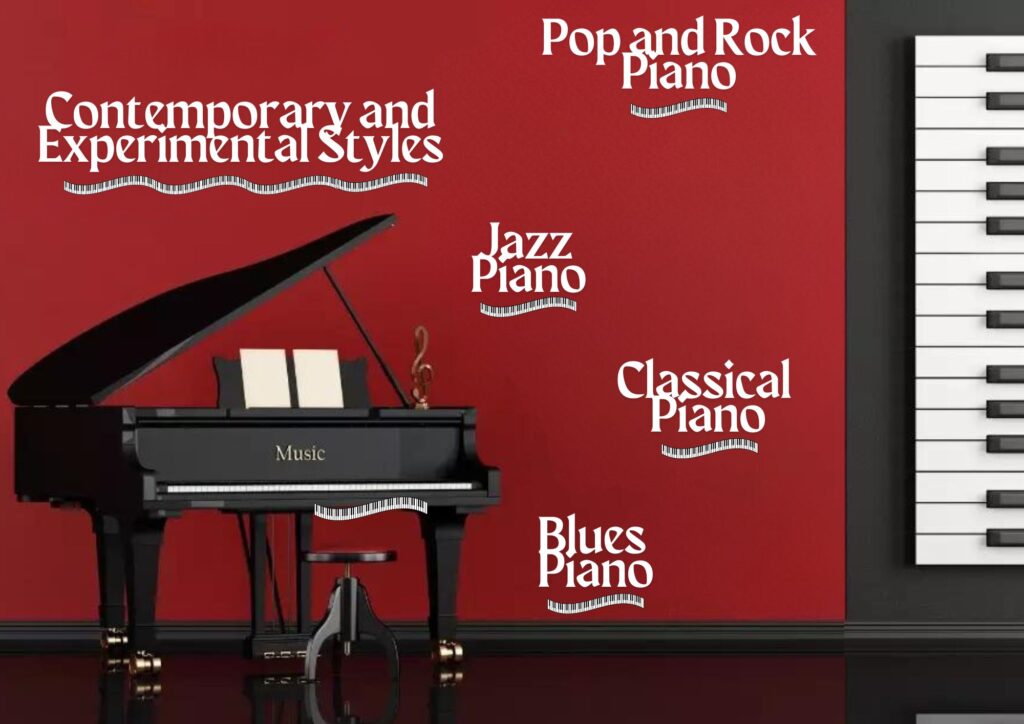Learn to Play Different Piano Styles for Advanced Learners
The piano, with its rich history and versatile sound, is an instrument that lends itself beautifully to a myriad of musical styles. For advanced learners, learning to play different piano styles not only broadens technical skills but also deepens musical understanding and emotional expression. This blog will guide you through the journey of mastering various piano styles, from the structured elegance of classical music to the improvisational freedom of jazz and beyond, showing how to learn to play different piano styles for advanced learners.
Classical Piano | The Foundation of Musical Mastery
Historical Context and Key Composers
Classical piano music, spanning from the Baroque period to the Romantic era, forms the bedrock of piano education. Key composers such as Johann Sebastian Bach, Ludwig van Beethoven, and Frédéric Chopin have left an indelible mark on the repertoire. Their works demand precise technique, emotional depth, and a deep understanding of musical form and structure. 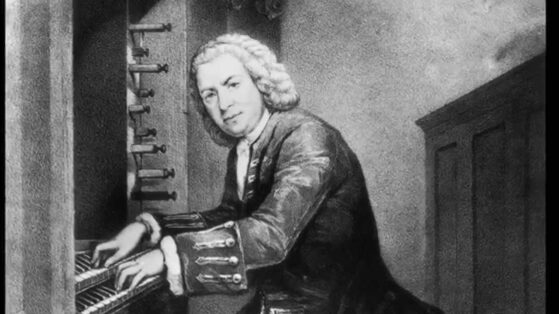
Technical Skills and Interpretation
- Technique: Advanced classical pieces often require a high level of technical proficiency. Mastery of scales, arpeggios, and complex fingerings is crucial. Techniques such as legato, staccato, and trills must be executed with precision.
- Interpretation: Beyond technical skills, classical music demands a nuanced interpretation. Understanding the historical and emotional context of each piece allows for a more profound performance. For instance, interpreting Beethoven’s “Moonlight Sonata” involves conveying its somber mood and dynamic contrasts.
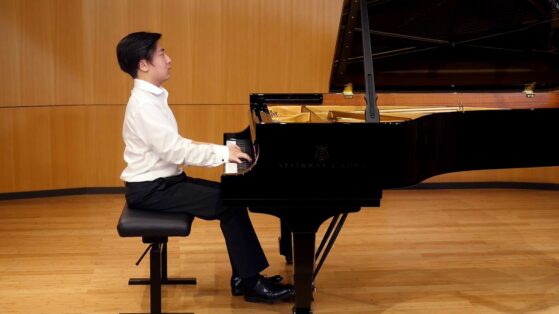
Jazz Piano | The Art of Improvisation
Historical Context and Key Figures
Jazz piano, originating in the early 20th century, emphasizes creativity and spontaneity. Pioneers like Duke Ellington, Thelonious Monk, and Bill Evans have shaped this genre with their innovative approaches to harmony and rhythm.
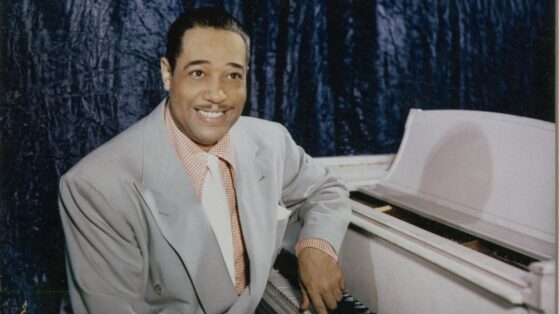
Core Elements of Jazz Piano
- Improvisation: At the heart of jazz is improvisation. Advanced learners must develop the ability to create spontaneous melodies and harmonies. This involves a deep understanding of scales, modes, and chord progressions.
- Swing and Syncopation: Jazz rhythm is characterized by its swing feel and syncopation. Mastering these rhythmic elements is essential for an authentic jazz performance.
- Voicings and Comping: Jazz pianists use a variety of chord voicings and comping patterns to accompany soloists. Understanding extensions and alterations in chords is crucial for creating rich harmonic textures.

Blues Piano | Expressive and Soulful
Historical Context and Influence
Blues music, with its roots in African American history, is characterized by its emotional expressiveness and repetitive structure. Influential blues pianists like Otis Spann and Pinetop Perkins have shaped the genre, leaving a lasting impact on countless musicians.
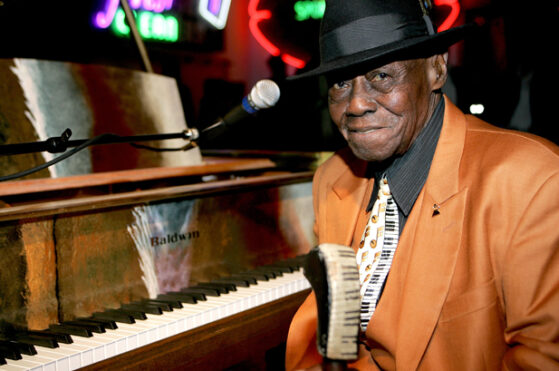
Key Characteristics of Blues Piano
- 12-Bar Blues: The standard 12-bar blues progression forms the foundation of many blues songs. Advanced learners should be comfortable navigating this progression in various keys.
- Blues Scale: Mastery of the blues scale is essential for soloing and improvisation. This scale, with its distinctive flattened notes, adds a soulful quality to melodies.
- Call and Response: This technique, where musical phrases are answered by contrasting phrases, is a hallmark of blues music. It requires both creativity and a strong sense of timing.
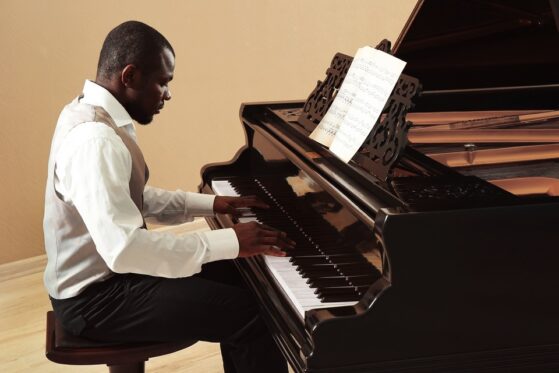
Pop and Rock Piano | Versatility and Energy
Historical Context and Popularity
Pop and rock music, dominating the charts from the mid-20th century to today, have produced countless iconic piano riffs and solos. Artists like Elton John, Billy Joel, and Freddie Mercury have showcased the piano’s versatility in these genres.
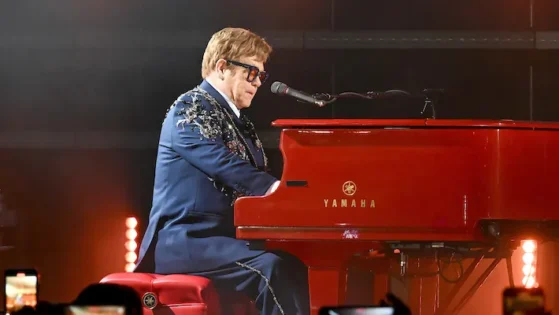 Key Techniques in Pop and Rock Piano
Key Techniques in Pop and Rock Piano
- Chord Progressions: Familiarity with common chord progressions, such as I-IV-V and vi-IV-I-V, is crucial. These progressions form the backbone of many pop and rock songs.
- Rhythmic Drive: Pop and rock piano often feature driving rhythms and syncopated patterns. Mastery of these rhythmic elements is essential for creating an energetic performance.
- Melodic Hooks: Creating catchy melodic hooks that resonate with listeners is a key skill. This involves blending technical proficiency with a keen sense of musicality.

Contemporary and Experimental Styles | Pushing Boundaries
Innovative Approaches and Modern Composers
Contemporary and experimental piano music pushes the boundaries of traditional genres. Composers like Philip Glass, Ludovico Einaudi, and Nils Frahm have introduced new techniques and sonic landscapes.
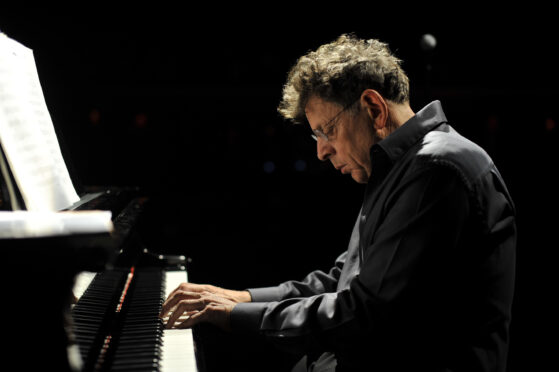
Exploring New Techniques
- Minimalism: Minimalist music, characterized by repetitive patterns and gradual changes, requires a different approach to performance. Precision and subtlety are key to maintaining the music’s hypnotic quality.
- Prepared Piano: This technique involves placing objects on or between the piano strings to alter its sound. It requires creativity and a willingness to experiment with unconventional sounds.
- Electronic Integration: Incorporating electronic elements and effects can expand the sonic possibilities of the piano. Advanced learners should explore how to blend acoustic and electronic sounds seamlessly.
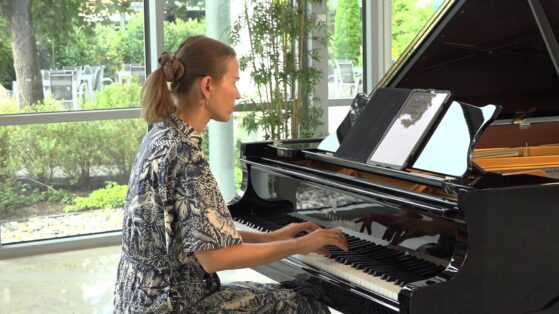
Conclusion | The Endless Journey of Mastery
Mastering various piano styles is a lifelong journey that enhances both musicians and their audiences. By learning to play different piano styles for advanced learners—such as classical elegance, jazz improvisation, blues expressiveness, pop energy, and contemporary innovation—you can develop a versatile musical voice. The Mystic Keys offers tailored courses and resources to help you learn to play different piano styles for advanced learners, guiding you through refining classical techniques, exploring jazz, and experimenting with new sounds. Ready to inspire through music? Let’s bring harmony to every worship service and beyond!
For more information and exciting resources on learning music, visit
The Mystic Keys. Follow us on Facebook, Instagram, YouTube, LinkedIn, Twitter,
Pinterest, Reddit, Threads and
Quora for engaging music content and special updates.Let’s explore the journey to musical excellence together!


